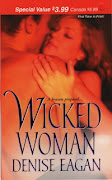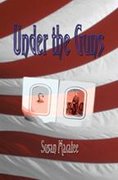It is Election time in both Canada and the United States, so I thought I’d take a look at what elections were like during Victoria’s reign.
Less than a decade before Victoria ascended the throne, the electoral situation in England (Wales, Scotland and Ireland too, but I’m not focusing on them) was badly in need of updating. The rules for who could vote changed with every borough--some ruled that every male householder who could boil a pot on his own hearth got a vote, while in other boroughs only those with a burgage property (basically, someone renting in some specific tenement blocks) could vote. There was also a problem in the size of the different constituencies. The largest borough had 12,000 voters, while the smallest had between 6 and 13 at any given election. Six! Six men’s vote was equal to the votes of 12,000! And of course, these were by no means secret ballots. It doesn’t take a genius to realize that many of these smaller constituencies were ripe for the votes being bought. Hence the term ‘pocket burough’, a borough in a (rich) politician's pocket.
Other problems included the fact that if you owned property in more than one county or borough, you got two votes (or three or more). Then there was the fact that some areas got no vote at all.
At her death, uniform voting rules were practiced throughout England, allowing almost all adult males the vote. Most of the smaller or ‘rotten’ boroughs were done away with to make way for new boroughs, and the composition of voting constituencies were roughly equal--or at least closer in size. In addition, they now used secret ballots.
About the only thing Victoria didn’t live to see was the successful culmination of Women’s Suffrage. And surprisingly, to me at least, Victoria was against the idea. She said,
“The Queen is most anxious to enlist every one who can speak or write to join in checking this mad, wicked folly of "Woman's Rights", with all its attendant horrors, on which her poor feeble sex is bent, forgetting every sense of womanly feeling and propriety.”
With all due respect Your Majesty, we've come a long way since then. Sarah Palin, Elizabeth May, Hillary Clinton, Kim Campbell, Margaret Thatcher . . .
http://history-world.org/england.htm
http://en.wikipedia.org/wiki/Reform_Act_1867
http://en.wikipedia.org/wiki/Reform_Act_1832
http://womenshistory.about.com/library/qu/blquvict.htm
Wednesday, September 24, 2008
Subscribe to:
Post Comments (Atom)









No comments:
Post a Comment